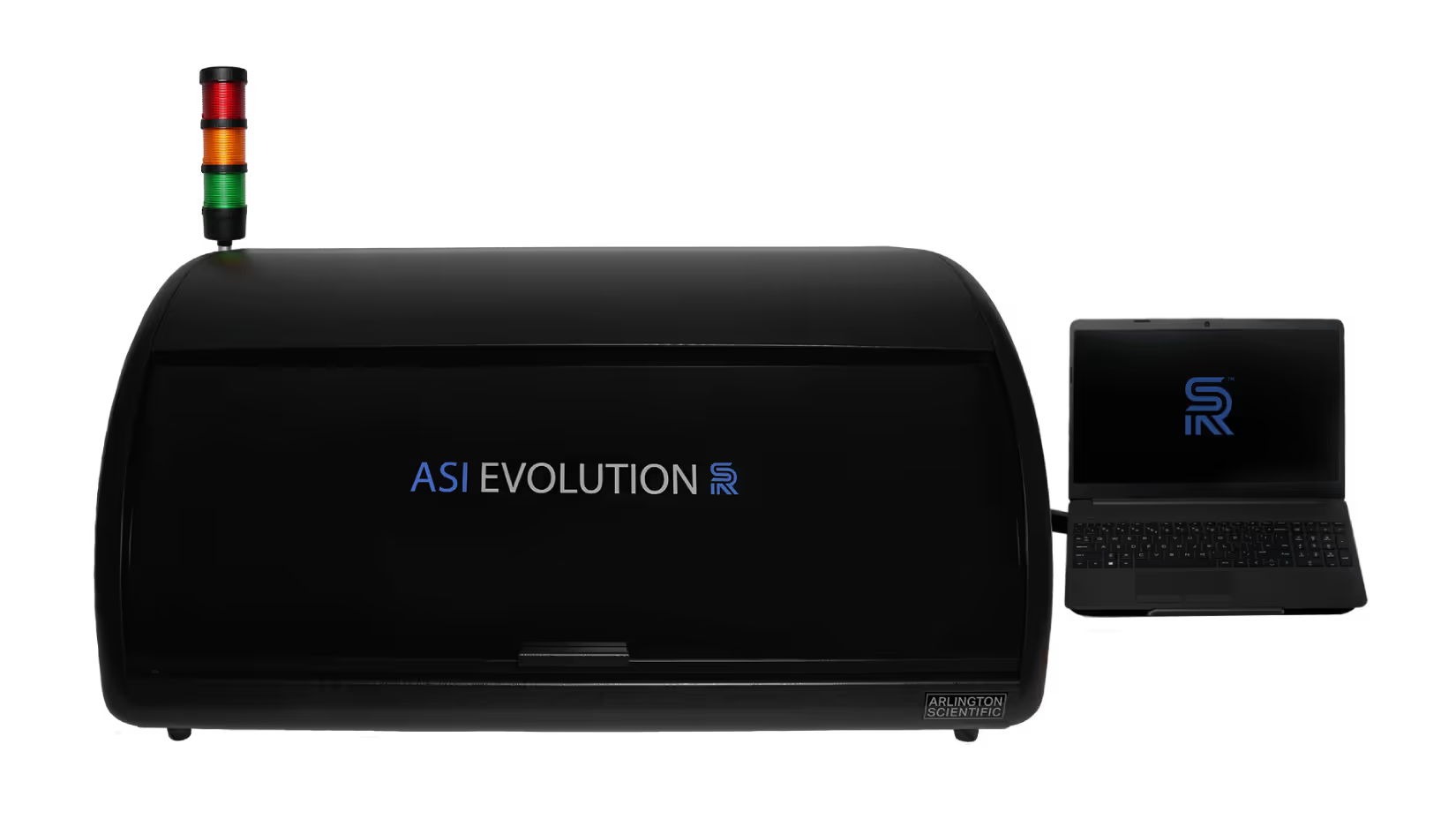
The ASI Evolution® SR is the world’s first and only fully-automated system for nontreponemal RPR Syphilis testing FDA cleared for diagnostic, blood donor screening and cadaveric (Non-heart beating) tissue screening.
Arlington Scientific advocates the use of the RPR test (a nontreponemal test) that detects antibodies formed in response to damaged host cells as the primary way of screening donors. The RPR test indicates if a person has an active infection.
Among reported STI’s, syphilis continues to climb at an alarming rate. According to a new 2023 report by the CDC, “The United States is currently experiencing a syphilis epidemic, with sustained increases in primary and secondary syphilis.4 This increase affects almost every demographic nationally. These new record levels are the highest numbers seen in more than 70 years resulting in a 2,140% increase in syphilis.4
The ASI Evolution SR Automated (RPR, nontreponemal) Syphilis Analyzer, FDA cleared for diagnostic, blood donor and cadaveric tissue screening, is quickly becoming the standard for automated RPR screening. Now labs can utilize Lab Techs more efficiently and simplify their syphilis screening workload with the ASI Evolution SR.

The ASI Smart Rack™ System is an optional accessory to the ASI Evolution® SR Syphilis Analyzer. The ASI Smart Rack System will aid in the setup of worklists and sample racks to help labs to be more efficient. The Smart Rack is equipped with an RFID passive tag that allows all the barcodes and positional data to live within the Smart Rack. This will increase efficiency as a Smart Rack can be prepared and staged without the immediate need for the ASI Evolution SR. This will also allow users with multiple machines to have a centralized location to create worklists, and the Smart Rack can then be placed on any available ASI Evolution SR instrument that is outfitted to work with the Smart Rack System.
The ASI Smart Rack System is intended to be used as an optional accessory of the ASI Evolution SR. The ASI Smart Rack System is designed to automate the process of building worklists for the ASI Evolution SR by allowing users to load in patient samples with reduced labor. It is intended to be acquired, possessed, and used only by health professionals.
The ASI Evolution SR® reduces the amount of hands on time required to run an RPR test, freeing up valuable lab resources.

“The CDC continues to recommend the traditional screening algorithm using a nontreponemal test (e.g., RPR or VDRL), with reactive nontreponemal tests confirmed by treponemal testing.4
A 2015 CDC study determined that nontreponemal tests can detect infection up to 14 days earlier than treponemal tests.

The CDC continues to recommend the use of the RPR test as away of determining active infections. In the CDC’s 2023 draft of “Laboratory Recommendations for Syphilis Testing in the United States,” it states that two-thirds of labs or 63.1% of labs continue to use the RPR traditional algorithm. In a cost study, cited in this same draft guidance, it states that treponemal testing is three times more costly than nontreponemal testing based on the CMS (Centers for Medicare and Medicaid Services) fee schedule.



